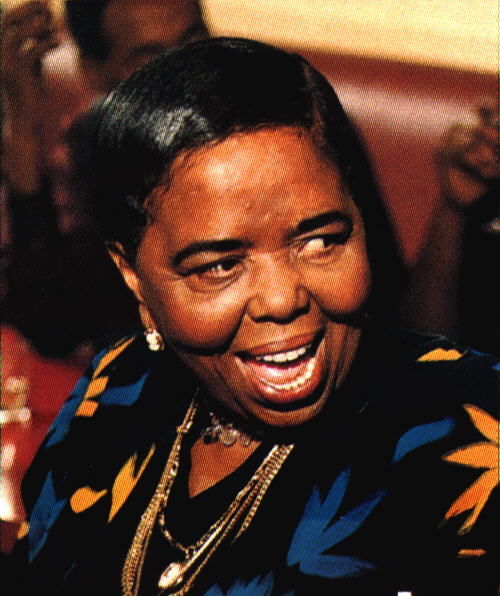Very little posting these days, because it's exam week, and it has been a nonstrop reading extravaganza since
September, though the pace has accelerated over the last few weeks as so many things appear on my desk and must be addressed, ASAP. A few thoughts on various things going on, below.
***
I was stunned to read about
the shooting earlier today at Virginia Tech (Virginia Polytechnic Institute and State University). According to the most recent accounts I've seen, two people are dead, one a campus police officer, the second the alleged shooter. I won't comment on what this means or attempt any sort of grand statement, but rather state how saddened I am to hear that there has been another shooting anywhere, but especially on the grounds of any educational institution, and especially on this one, which was the site of a horrific spree in 2007, in which 33 people died and 25 were wounded. I can only imagine how shaken people at Virginia Tech and their friends and family members are right now. My thoughts and best wishes go out to their entire community.
***
 |
| from the New Yorker |
I was very happy to hear
President Barack Obama's
lively, progressive speech at Osawatomie High School in Osawatomie, Kansas, reprising some of the themes not only of the 2008
Democratic campaign and of the
Occupy Resistence Movement, but also of
Teddy Roosevelt's 1910 speech in which he expounded his famous "New Nationalism" ideas, championing a positive government role in domestic affairs.
Reggie H. smartly (as always) pointed out today, and I've seen almost no media mention of it, that Osawatomie also has a deeper resonance. It is one of the towns the
(New England) Emigrant Aid Society founded in the wake of the 1854
Kansas-Nebraska Act to ensure Kansas was a free state, unlike its neighbor to the east,
Missouri, and it was to Osawatomie that
abolitionist John Brown--whose half-sister
Florella Adair had already established a home there with her husband, anti-slavery preacher
Rev. Samuel Adair--traveled in 1855 to take up the cause of anti-slavery resistance. Brown made the Adair home his base of operations, and in 1856 killed five pro-slavery men at
Pottawatomie Creek, near
Lane, Kansas, an event that was subsequently known as the
Pottawatomie Massacre, and which helped to give Kansas, along with Missouri a site of constant skirmishes and later, during the
US Civil War, outright battles, between anti-slavery and pro-slavery forces, its moniker of "
Bleeding Kansas."
I would imagine that as smart as President Obama is, he knows this history, but he is probably doing the right thing by focusing on TR, as as opposed to JB. Now, if he would only stick to the substance of this speech, as opposed to launching yet another attractive
Zeppelin that goes nowhere, and if he would begin by firing his
Secretary of the Treasury,
Timothy Geithner, one of the chief engineers of his approach to
Wall Street and the banks, I think I'd be willing to take him more seriously as TR's (or even JB's) modern apotheosis.
***
Yesterday,
Illinois's former Democratic governor
Rod Blagojevich,
was sentenced to 14 years after being convicted on
18 counts of corruption, including attempting to sell off the
US Senate once held by
President Barack Obama. Judge
James Zagel noted that although Blagojevich had done some good while governor (he was a good advocate for working-class Illinoisans and the elderly), his crimes deserved severe punishment. He put it this way: "When it is the governor who goes bad, the fabric of Illinois is torn and disfigured and not easily repaired."
Blagojevich's sentencing follows his effective prosecution by
US Attorney for Illinois Patrick Fitzgerald, who yesterday expressed his utter disgust for Blagojevich's brazen behavior. An earlier trial concluded with jurors unable to convict on more than just 1 of 24 counts, lying to the FBI. In the second trial, Fitzgerald snared him on 17 of 20 counts. What made Blagojevich's situation so outrageous is that he was elected in 2002
on a reform platform, and his
immediate predecessor,
Republican George Ryan, was convicted of corruption and is still in jail. Of the four Illinois governors sent to prison in the last 40 years, Blagojevich has received the longest sentence; Ryan only received 6 1/2 years. He will have to serve at least 12 unless he is pardoned, an unlikely outcome.
What is likely is that he'll appeal, but the wiretaps that helped convict him this time won't be going away, so he had better start preparing for a long stay behind bars.
***
Watching
Newt Gingrich ascend to the top of the GOP polls feels like a combination of vertigo and
déja vu, but it stands to reason that one of the most notoriously outrageous and corrupt rhetoricians to grace our national politics, a former professor of history, a lobbyist par excellence, a party boss, and, at his professional peak, the
Speaker of the House of Representatives, has returned, like a horrendous repressed memory or the zombie discourse of the 1990s, with renewed vigor and force, to vie as the
Republican nominee for the 2012 US presidential race. There are so many awful things about Newt Gingrich's record, his history of gross misstatements, distortions and lies, his hypocrisy, and so much else, that I would have thought he'd forever disqualified himself from public office, anywhere, including outside the US. But such is the logic of American life that certain people--not everyone--get second or even multiple chances, and if you are rich and famous and outlandish enough, you might even get the biggest second chance of all, to lead the country, including right into the ground. On the one hand I view Gingrich's ascent with a bit of laughter, but he is so unbelievably compromised, to the point of absurdity; on the other hand, I also keep in mind that in my lifetime, my fellow Americans twice elected
Richard Nixon, Ronald Reagan, and
George W. Bush, so...well, I'd rather not put that horrible outcome into words. And let's work to ensure it's not an actuality, either.
***
 |
| Albert Pujols, Oct. 29, 2011 (Jeff Haynes / Reuters) |
On a far less important note, at least to the majority of people out there who are
not Saint Louis Cardinals baseball fans, the wires reported today that
Baseball Hall of Fame-bound first baseman
Albert Pujols has signed a 10-year-deal with a no-trade provision, for $250 million, with the
Los Angeles Angels of Anaheim. (Yes, that is their official name.) Pujols spent exactly 11 years with the Cardinals, and produced a record that outstrips that of many of the greatest baseball players of all time. The 2001
National League Rookie of the Year and a three-time winner of the
National League Most Valuable Player Award (in 2005, 2008 and 2009), Pujols has hit 445 home runs, driven in 1,329 runs, scored 1,291, won a battle title (in 2003, at the age of 23, hitting. 359), led the National League in slugging three times, in OPS three times, and in total bases 4 times. He also was a key player in the Cardinals' post-season success during his tenure; they won the World Series in 2006, and again this year, and made it to the finals in 2004 (losing to the
Boston Red Sox), and were repeatedly in the playoffs, in no small part because of his consistently excellent play. The Cardinals' ownership had offered Pujols around $200 million for 9 years, but it apparently was not enough. Saint Louis's loss is Los Angeles (and Anaheim's) and the
American League's gain, but whatever Pujols does after this point, he made his name, his career and his fame in the
Mound City.
 |
| Reyes donning his new team cap (LM OTERO / AP PHOTO) |
Also changing teams was the
New York Mets' longtime shortstop and emergent star,
José Reyes, who will now play for the
Miami (no longer just the Florida)
Marlins, who also have a new taxpayer-funded stadium in the city's
Little Havana neighborhood. Reyes has said that he never received a firm offer from the Mets, who are still reeling from some of the ownership's involvement in the
Bernie Madoff ponzi scheme scandal, and who, despite packing the team with all-stars in the mid-2000s, could never seem to go all the way. Reyes has suffered repeated leg injuries over the last few years, but still won this year's National League batting title, and is only 28, so the Marlins should get at least half a decade's worth of good years out of him, and vice versa. Currently on a spending spree, they also got the
Chicago White Sox's best pitcher, my homeboy
Mark Buehrle, and their former manager,
Ozzie Guillén. If they keep up at this rate, they will be
the team to watch next season and for season to come, whether they win or not. The Marlins forbid long hair (???), so Reyes must
again cut off his beautiful dreadlocks. (I know, I know, I cut mine off two years ago, so I shouldn't be saying anything, but still...I didn't look like
José Reyes!)





















































